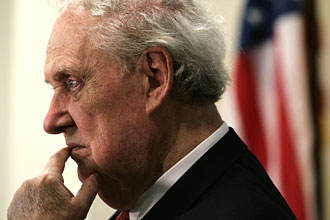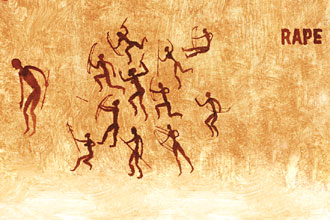Basically everything that this article says we should do, we know we need to do the complete opposite - Globalist NWO gumph like this is a danger to every free thinking individual around the globe...
We Need a Bank Of the World
The financial crisis is global, and only an international central bank can deal with it.
Email To A Friend
Please fill in the following information and we'll email this link.
If George W. Bush's upcoming global summit on how to fix the world's broken financial system—an event proposed by several European presidents and prime ministers—is to be a serious effort, the leaders should begin laying the groundwork for establishing a global central bank.
The idea of such an institution would have been a political nonstarter before the current debacle. The crises of the last several decades—the Latin American debt meltdown in the early 1980s, the stock-market crash in 1987, the savings and loan collapse of the early 1990s, the Asian financial blowup of the late
1990s, the Internet-stock collapse earlier in this decade—did not involve the extent of global linkages among financial institutions or the mind-boggling consequences of complex securities that we are seeing today. In none of these previous blowups did the global credit system shut down, as it did in recent weeks; in none did governments in both the industrialized and developing world intervene so massively, coming close to nationalizing the entire global banking system.
And in none was it so clear that there is no effective governing authority at the center of global finance. There was a time when the U.S. Federal Reserve played this role, as the prime financial institution of the world's most powerful economy, overseeing the one global currency. But with the growth of capital markets, the rise of currencies like the euro and the emergence of powerful players such as China, the shift of wealth to Asia and the Persian Gulf and, of course, the deep-seated problems in the American economy itself, the Fed no longer has the capability to lead singlehandedly.
After World War II, the IMF was designed to be a central financial institution, too. But over the decades it has had less and less influence on the rich industrialized nations. Its credibility with Asia and Latin America has also waned. It is still involved in bailouts for countries such as Iceland and Pakistan, but its once central role in protecting global stability is clearly over. And most important, its political legitimacy is deeply flawed, because its management structure reflects the 1950s, with Belgium having more voting power than China.
In the future, a global central bank is needed to oversee the rudderless global financial system. There are a number of critical functions it could perform.
- 1
- 2
- 3
- Next Page »



























